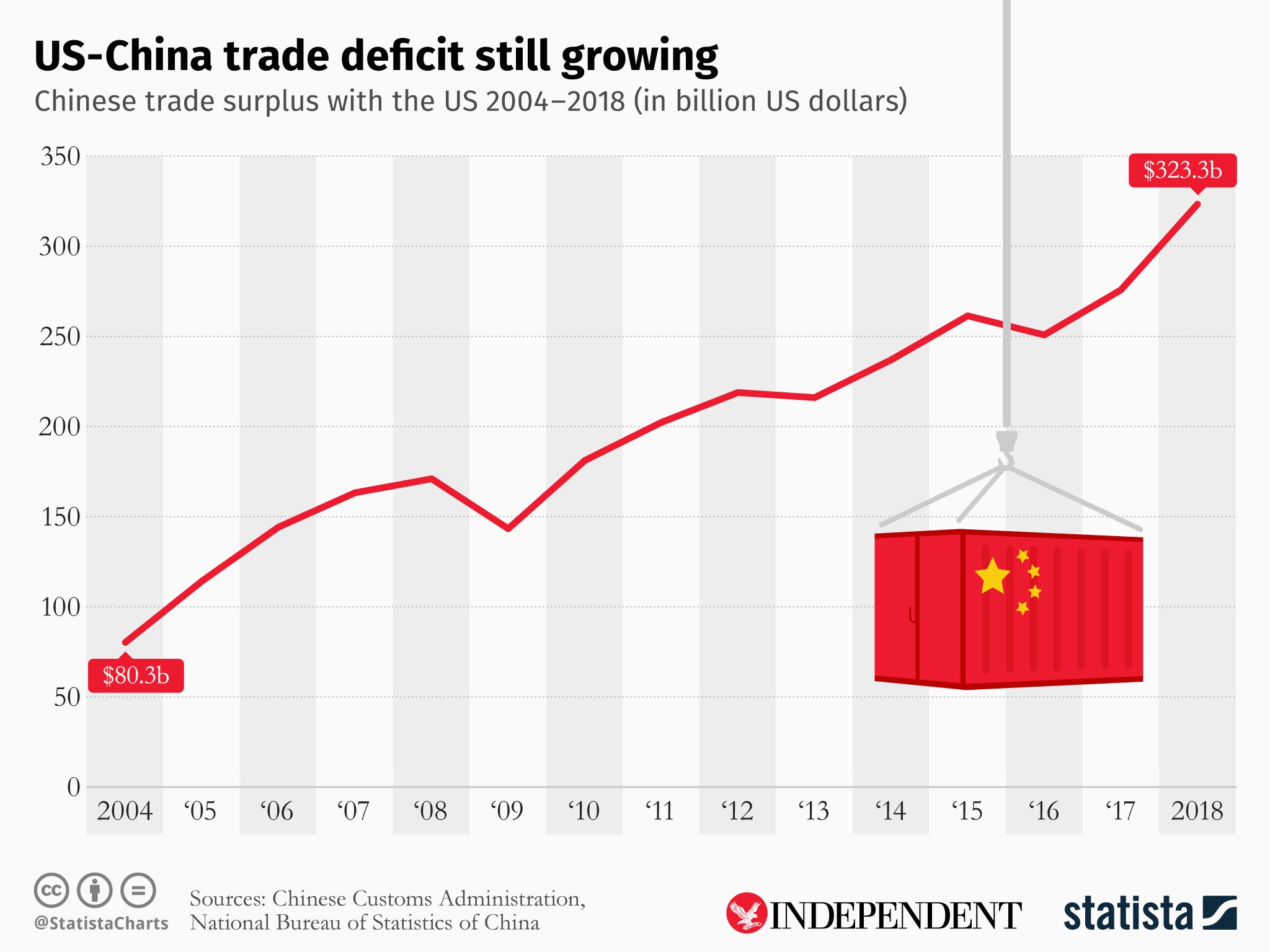Trump administration ‘pessimistic’ about striking trade deal with China, White House sources say
US fears agreement will not be enough to end trade war between two countries as China’s economic growth slows, according to officials involved with talks
Your support helps us to tell the story
From reproductive rights to climate change to Big Tech, The Independent is on the ground when the story is developing. Whether it's investigating the financials of Elon Musk's pro-Trump PAC or producing our latest documentary, 'The A Word', which shines a light on the American women fighting for reproductive rights, we know how important it is to parse out the facts from the messaging.
At such a critical moment in US history, we need reporters on the ground. Your donation allows us to keep sending journalists to speak to both sides of the story.
The Independent is trusted by Americans across the entire political spectrum. And unlike many other quality news outlets, we choose not to lock Americans out of our reporting and analysis with paywalls. We believe quality journalism should be available to everyone, paid for by those who can afford it.
Your support makes all the difference.The Trump administration is increasingly "pessimistic" that China will make the structural changes to its economy that the US wants as part of a comprehensive trade agreement, according to White House sources.
Ahead of a round of talks that begin next week, the US is now doubting whether the trade deal being brokered will be enough to end a damaging trade war between the two nations and help calm volatile markets.
A Chinese delegation led by Liu He, China’s vice premier, will meet with Robert Lighthizer, the Trump administration’s top trade negotiator and treasury secretary Steven Mnuchin on 30 and 31 January.
The two countries are racing to strike an agreement by 2 March – a deadline set by Mr Trump and China's president Xi Jinping.
If no deal is reached by that date, Mr Trump has said the US will raise tariffs on $200bn (£154bn) worth of Chinese goods.
Mr Trump has focused on narrowing the trade gap between what the US imports from China and what it exports. But the administration is also pressuring Beijing to scale back subsidies of state-owned enterprises, drastically open its markets to foreign investment and end its practice of forcing US companies to hand over trade secrets.
For years, US companies have been clamouring for such changes as they try to gain access to China’s growing market.
But many are beginning to fear that if the continuing brinkmanship is not resolved, US companies will be left in an even worse position.

“I would have a hard time, especially considering what’s happening in Washington, believing that this will be wrapped up in a little bow by March,” said Charles Freeman, senior vice president for Asia at the US Chamber of Commerce.
In a tweet earlier this week, Mr Trump again suggested the United States had the upper hand in negotiations.
“China posts slowest economic numbers since 1990 due to US trade tensions and new policies,” the US leader wrote. “Makes so much sense for China to finally do a Real Deal, and stop playing around!”
Others in the administration and on Capitol Hill have been more circumspect.
“This is an ongoing process with the Chinese that is nowhere near completion,” a Treasury spokesman said.
The New York Times

Join our commenting forum
Join thought-provoking conversations, follow other Independent readers and see their replies
Comments